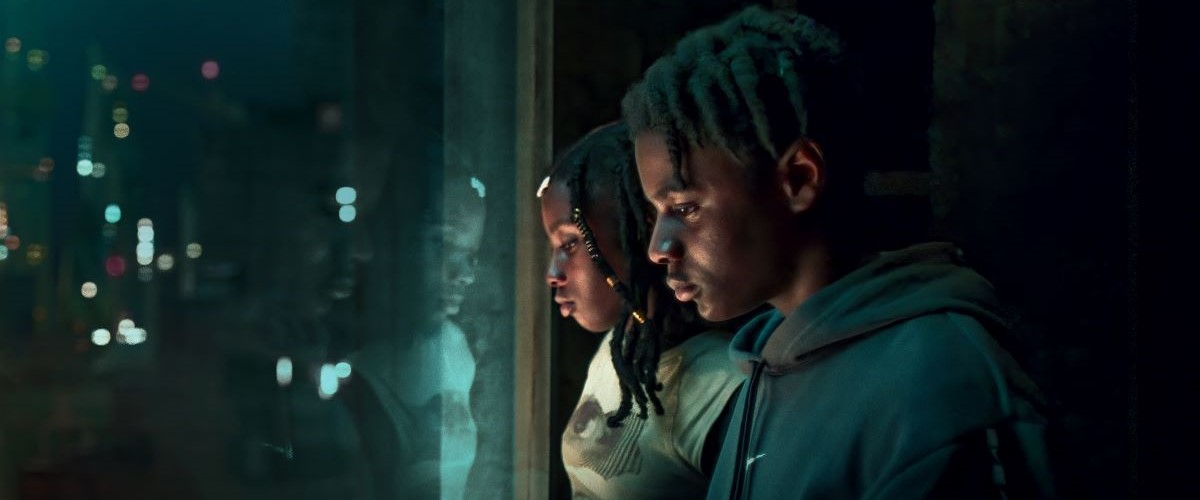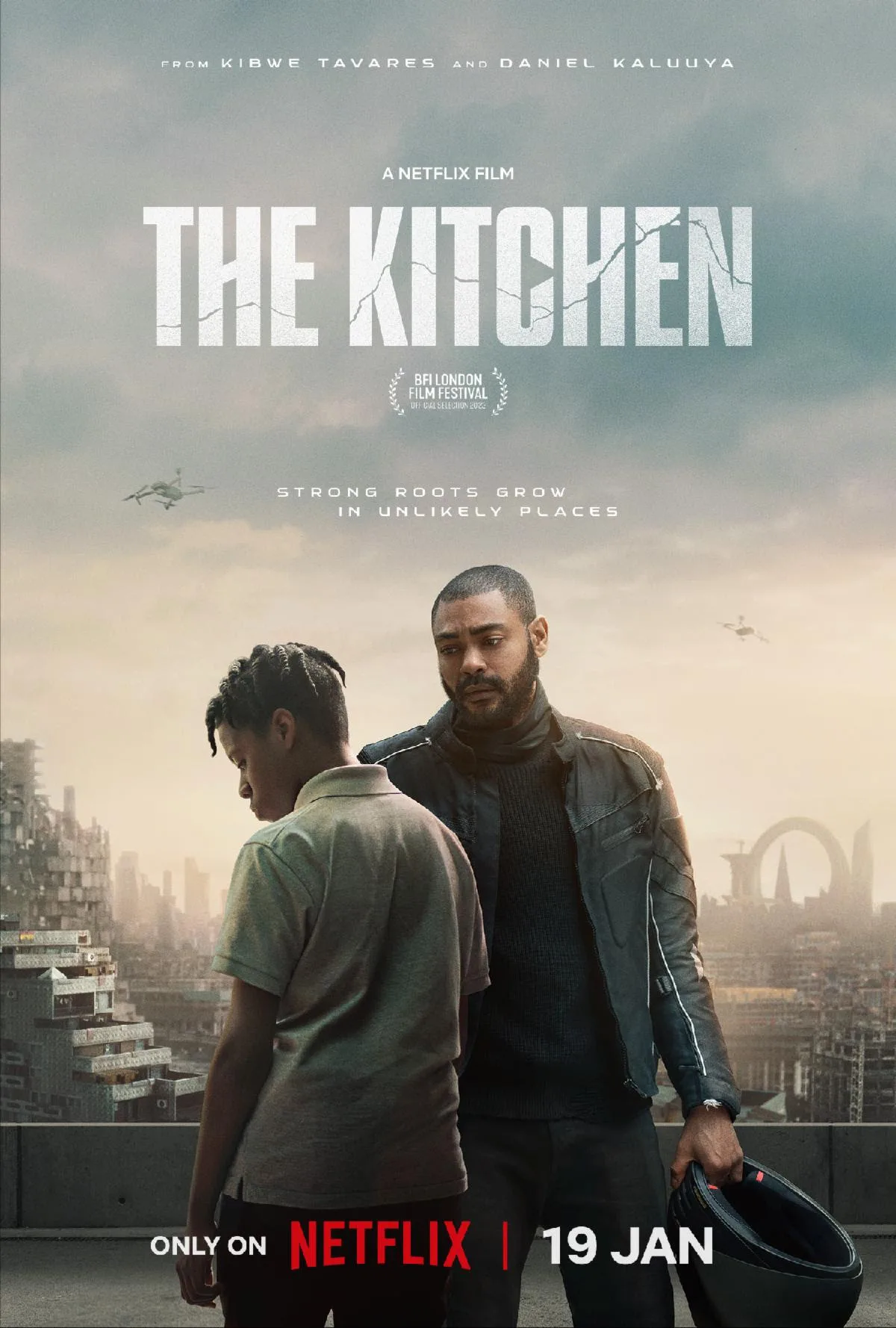A directorial debut for both co-directors, Oscar-winning actor Daniel Kaluuya and Kibwe Tavares, “The Kitchen” is a tale set in a near-future dystopian London. Tackling the inaccessibility of affordable housing while turning the volume up to eleven, “The Kitchen” almost reads like a damning premonition of what’s to come as the gap between rich and poor widens to even more damning degrees.
Izi (Kane Robinson) lives in the Kitchen, a take on a futuristic housing project that has truly become a world of its own, like a mutated stack of buildings reminiscent of Hong Kong’s former Kowloon Walled City. Sequestered on the outskirts of metropolitan London, the Kitchen houses the city’s poor community and is the frequent target of brutal, violent police raids. Izi works in the city at a futuristic funeral service, Life After Life, where families too poor to afford a burial can instead have their loved ones turned into trees for planting. Anticipating that his community is on the brink of a final takeover from the government, they have been prepping and saving up to move out of the Kitchen. On the whole, Izi is a loner, having only acquaintances and no friends (later affirmed by the fact that he didn’t know his closest friend had a daughter). He has no one to look out for but himself, but his plans become complicated when he has a run in with recently orphaned Benji (Jedaiah Bannerman).
The young boy starts to cling to him, joining him first at the Life After Life facility and then following him into the Kitchen, consequently establishing relationships with a group of young vigilante activists. Feeling a sense of protection for him, Izi and Benji develop a bond that tethers Izi back to the home he was ready to leave. As the raids become more frequent and the state of the Kitchen grows dire, the duo confronts the impending conflict and violence together amidst their own journey toward learning, and for Benji, relearning, how to navigate the world with someone else by your side.
Kaluuya and Tavares’ direction is by far the film’s strongest asset. From kinetic scenes of staggering tension to meditative sequences that peek into the characters’ interiorities, the film never wavers on its emotional efficacy. The world of the Kitchen, named so due to the fact that the residents bang spoons on pots and pans in order to alert of an incoming raid, is well executed. The colors range from the stone and rust-colored facades to the neon thrills of its underground party scene.
While a lesser film would imbue the culture of this community exclusively with tragedy and strife, “The Kitchen” doesn’t take the easy route of becoming a shallow symbol of poverty. It allows for the realities of life while continually having little details that affirm the thoughtfulness of its lore. Early in the film it is announced that water is only available on one side of the massive community due to cutoffs from the city; added to the atmosphere is also the whirring of police drones that frequently invade the Kitchen. These details don’t call too much attention to themselves in the plot, but instead are peripheral details that point to both the resource restriction and over surveillance of poor communities. The film also devotes a wealth of attention to the amusement of day-to-day humanity, throwing in touches of coming-of-age, like Benji attempting his first kiss. Such amusements are furthered by the inclusion of fun moments steeped in Black culture, a no doubt intentional inclusion, from goofy freestyle battles to clubby roller rinks and excellent needle drops from Sampha and David Ruffin.
Robinson and Bannerman give performances that hint to their respective characters’ inner lives, balancing both their believable chemistry as loners turned partners against the world. Bannerman’s naivety and childlike openness is a foil to Robinson’s cold exterior, and the way they give and take each other’s traits is believably and thoughtfully executed.
And yet, even with the world-building and direction making for an immersive experience, at times the script gets tangled in its own complexity and “The Kitchen” bites off more than it can chew. There’s a handful of loose ends that don’t play as open-ended, but as simply unanswered, almost as if the film is begging for sequel rights. And while the script pivots to focus on the dynamic between Izi and Benji, allowing for some excellent emotional payoff, it neglects to retrace its tracks and bring attention back to the world it so carefully built from the beginning, rendering its potential untapped.
On Netflix now.




















